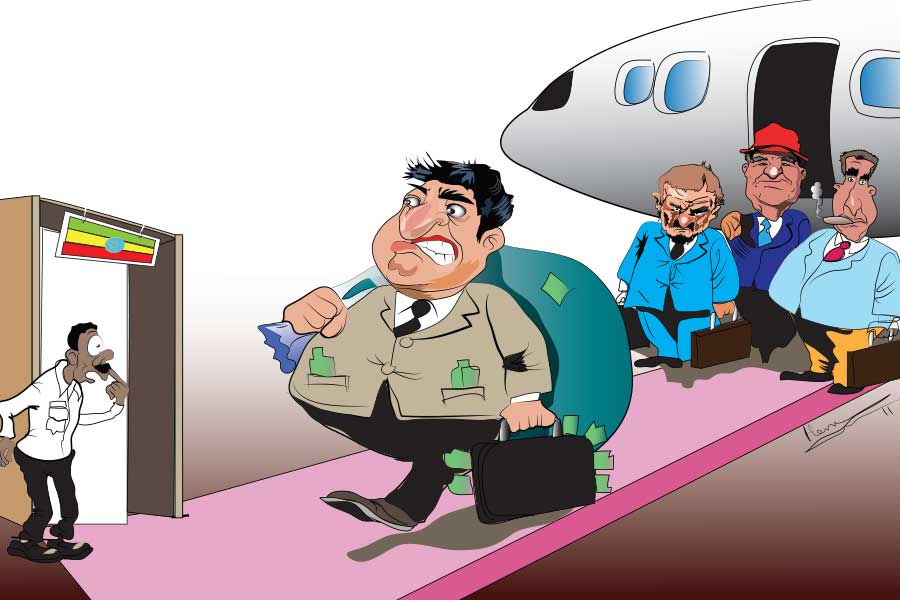
Radar | Jul 23,2022
Many parents were jolted by the city education authorities’ decision to bar private schools from registering students for the next academic year. Among the affected schools is Gibson School Systems, an educational stalwart serving over 10,000 students and employing over 1,500 people, including several hundred teachers. The school was sanctioned for non-compliance with a curriculum the Addis Abeba Education & Training Quality Control Authority recently enforced, having previously faced restrictions for allegedly using English as a medium of instruction, which led to students registering under other schools’ names for national exams. Gibson’s management quickly convened with education authorities and city officials, chaired by Mayor Adanech Abiebe. An agreement was reached to comply with regulations in exchange for the reinstatement of their accreditation. Mohammed Aden, president and co-founder of Gibson, communicated this development to parents, urging support for the city’s direction and leadership. The crackdown by the Authority has taken many by surprise, especially as 802 of the capital’s 1,559 private schools are due for renewal this year.
The Authority’s officials argue that all institutions must adhere to national standards and education policies. The Authority oversees approximately 2,500 schools, including 400 technical and vocational trainers, and plans to release a complete list of schools open for the next school year, including 1,332 institutions. They urged parents to register their children at certified schools under the Authority’s close monitoring. Education authorities claim to have been inspired by Scandinavian educational models, but the reforms they have introduced stirred debates among parents and educators. Inspections revealed resistance to the new curriculum, prompting the stringent measures. Some parents have taken drastic measures, such as sending their children to other countries to avoid the new curriculum. Critics argue that the emphasis on using the mother tongue as the primary instruction medium in primary schools, with English relegated to a secondary subject, could impede students’ prospects. They also raise concerns about the quality of textbooks and the overall educational framework under the new system.
Experts hold divergent views on curriculum reforms. Some call for linking curriculum changes with financial and infrastructure capabilities, advocating for minimum standards rather than sweeping reforms. They stress the importance of incorporating English into the local curriculum to ensure students can communicate effectively internationally. Others argue that quality education should focus on skills that build livelihoods and productivity, not just fluency in English. The reforms also include stricter standards for school infrastructure and classroom equipment, with inspection teams evaluating various aspects of schooling. The private schools have expressed shock and confusion over the abrupt crackdown and the lack of communication from the authorities.
You can read the full story here
PUBLISHED ON
Jun 22,2024 [ VOL
25 , NO
1260]

Radar | Jul 23,2022

Radar | Oct 31,2020

Radar | Sep 18,2023

Commentaries | Apr 13,2024

Agenda | Jul 27,2019

Radar | Apr 06,2019

Radar | Jun 01,2019

Viewpoints | Dec 17,2022

Commentaries | May 31,2025

Fortune News | May 23,2021

Dec 22 , 2024 . By TIZITA SHEWAFERAW
Charged with transforming colossal state-owned enterprises into modern and competitiv...

Aug 18 , 2024 . By AKSAH ITALO
Although predictable Yonas Zerihun's job in the ride-hailing service is not immune to...

Jul 28 , 2024 . By TIZITA SHEWAFERAW
Unhabitual, perhaps too many, Samuel Gebreyohannes, 38, used to occasionally enjoy a couple of beers at breakfast. However, he recently swit...

Jul 13 , 2024 . By AKSAH ITALO
Investors who rely on tractors, trucks, and field vehicles for commuting, transporting commodities, and f...

Oct 25 , 2025
The regulatory machinery is on overdrive. In only two years, no fewer than 35 new pro...

Oct 18 , 2025
The political establishment, notably the ruling party and its top brass, has become p...

Oct 11 , 2025
Ladislas Farago, a roving Associated Press (AP) correspondent, arrived in Ethiopia in...

Oct 4 , 2025
Eyob Tekalegn (PhD) had been in the Governor's chair for only weeks when, on Septembe...